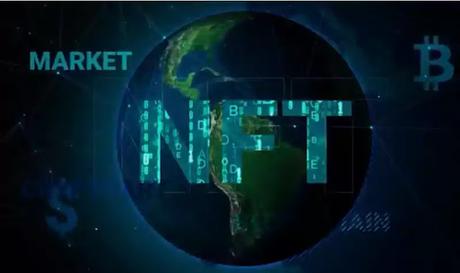
You've probably heard about some celebrities like Jimmy Fallon, Snoop Dogg, Post Malone, Steph Curry, Von Miller, and a plethora of others buying NFTs for insane prices. Some of these digital products have sold for hundreds of thousands - and even millions - of dollars. But why? What is the point of buying an NFT? What does it do for you? What do you do with it?
What is NFT
If you do a quick Google search, you will quickly find that NFT stands for Non-Fungible Token. And if you're anything like the majority of people, that doesn't help you one bit. So let's first define fungibility.
What is fungible and what is not?
Basically, if an item is replaceable with something equivalent, then it is considered fungible. For example, if you have a $100 bill, you can exchange it for another Benjie and it won't really matter since they both have the same value.
It's the same thing as stock in a company; one share is worth the same individual as every other share. All shares fluctuate at the same rate. The same goes for BitCoin, DogeCoin, Ethereum, and any other crypto token. On the other side of things, if something is non-fungible, it is not replaceable with another item.
For instance, if you're a comedy fan and you want to attend Dave Chappelle's new stand-up, the ticket you purchase will be a non-fungible item because no ticket will be the same as the one you buy. Every ticket has assigned seats, dates, and values, as the closer you get to the stage, the more valuable the ticket. To summarize, "non-fungible" means the item is unique and cannot be replaced with an equivalent item.
So, what can an NFT be? Is it just digital drawings?
Not exactly. An NFT can be anything digital, including music, drawings, videos, and even signed tweets. Yeah, signed tweets. Somebody actually bought the founder of Twitter's tweet, for $2.9 million.
Now, the question is: why would anyone want to pay money for something that can be reproduced and copied infinitely? Well, there's one thing that cannot be reproduced or copied: ownership of the work.
See, you can make as many copies of the Mona Lisa as you'd like, but none of them are THE Mona Lisa, and thus, none of them are worth anywhere near what the Mona Lisa is worth. Nobody cares about the fake copy you might have hanging from your wall in the basement.
Why? Because it really isn't worth anything. In a nutshell, the non-fungible part of the puzzle is ownership. Anyone can make another digital copy of a digital item, but they cannot claim ownership of the artwork.
How does this benefit the owner?
This is where each owner differs. Some people buy it simply to "flex." People will buy anything if it is rare and unavailable to the majority of people. An NFT is just that: nobody else can "own" the same piece of art. So if your goal is to flex on somebody, here's your opportunity.
Another reason is simply to support the artist. If you believe the artist deserves to be compensated for their work, you might consider buying one of their NFTs.
A third reason - and probably the biggest - is people are looking at them as investments. Just the same way we view real estate as an opportunity to make a profit, a lot of people believe NFTs will appreciate in value, making that hefty price tag seem like a bargain in the future.
Me, personally, the only way I'd consider buying an NFT is as an investment. I don't care to flex on anyone and I don't currently know of any artists that I would insist on supporting monetarily - at least not for digital art that I can view anytime I want, even though I don't own it. Now that we know why somebody might buy an NFT.
Who exactly is selling NFTs?
Let's take a look at some of the artists that are selling NFTs, and what they might cost you. In short: pretty much everybody is selling NFTs. Even brands like Marvel, Taco Bell, Pizza Hut, and Pringles are getting into the NFT business, and of course, many celebrities are marketing their own NFTs, such as Logan Paul, Wayne Gretzky, William Shatner, A$AP Rocky, Paris Hilton, and even John Cena.
But beware - assuming you're investing and hoping to turn a profit - just as is the case with nearly every investment opportunity, there is an inherent risk involved, as the NFT could depreciate in value and lose you money. This was the case for NFTs from the aforementioned John Cena, Paris Hilston, and A$AP Rocky.
There doesn't seem to be much resale value outside of the core group of fans for these celebrities, so big profits on their work are not likely. Obviously, not all NFTs will depreciate in value.
Take CyrptoPunk #561 for example. This piece of work initially sold for a little over $8,000 on September 15, 2020. It then resold for a whopping $2.38 million in November of 2021. Another example is Bored Ape Yacht Club #2224, which sold for a little over $2,000 in May of 2021, then resold for over $335,000 in November of 2021.
Other notable sales include Crossroad by Beeple, which sold for $6.6 million, CryptoPunk #3100, which sold for $7.58 million, Cryptopunk #7804, which sold for $7.56 million, CryptoPunk #7523, which sold for $11.7 million (noticing a trend here?), and the highest-priced NFT ever sold: Everydays: The First 5000 Days by Beeple, which sold for a staggering $69.3 million.
Bottomline
Now that we know what NFTs are and why people buy them, do you plan to get into the NFT game? There's a lot of hype around NFTs at the moment and it doesn't seem like it's going to die down anytime soon. Hit that comment section and let me know what you think about owning digital property.
Is it a fad, or is it here to stay? As with anything, if you do decide to make a purchase, be sure to do your due diligence and make the decisions that are right for you and your financial situation.

